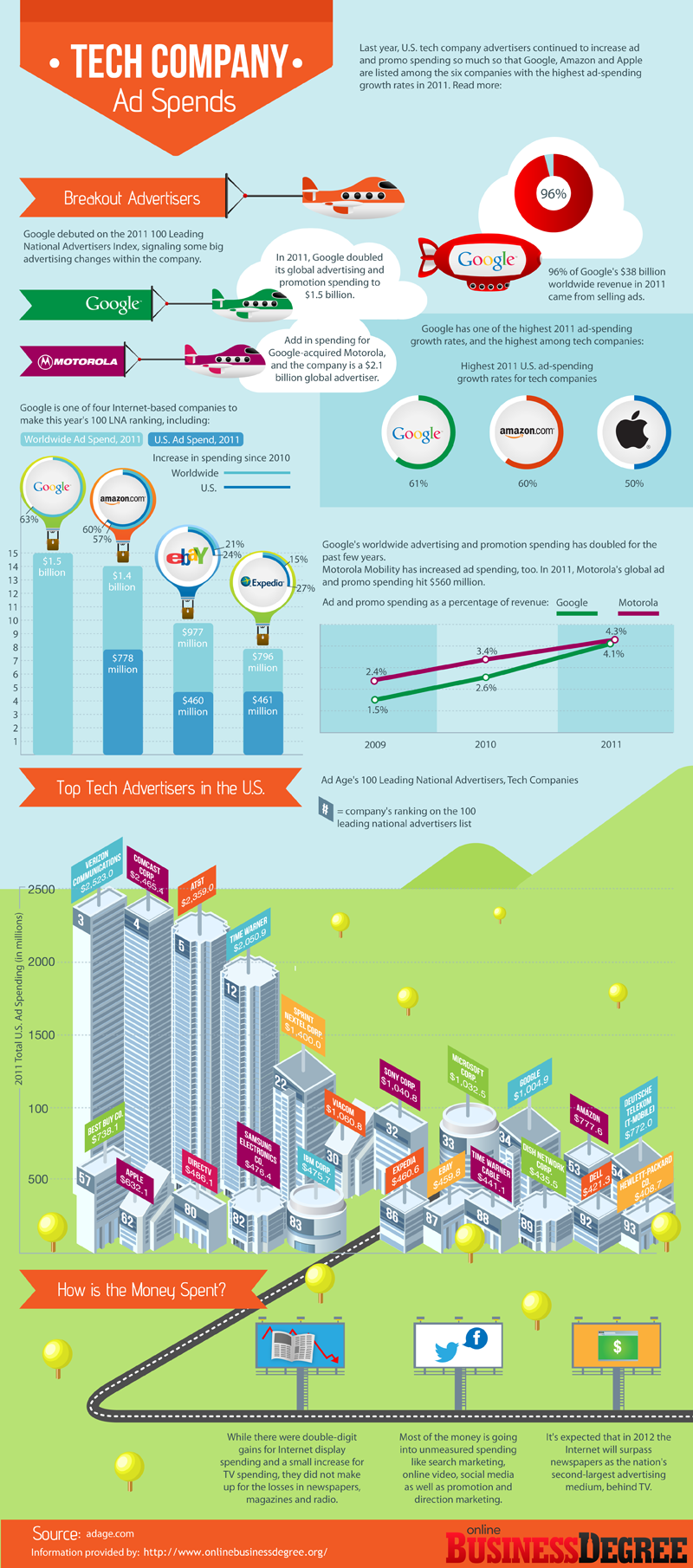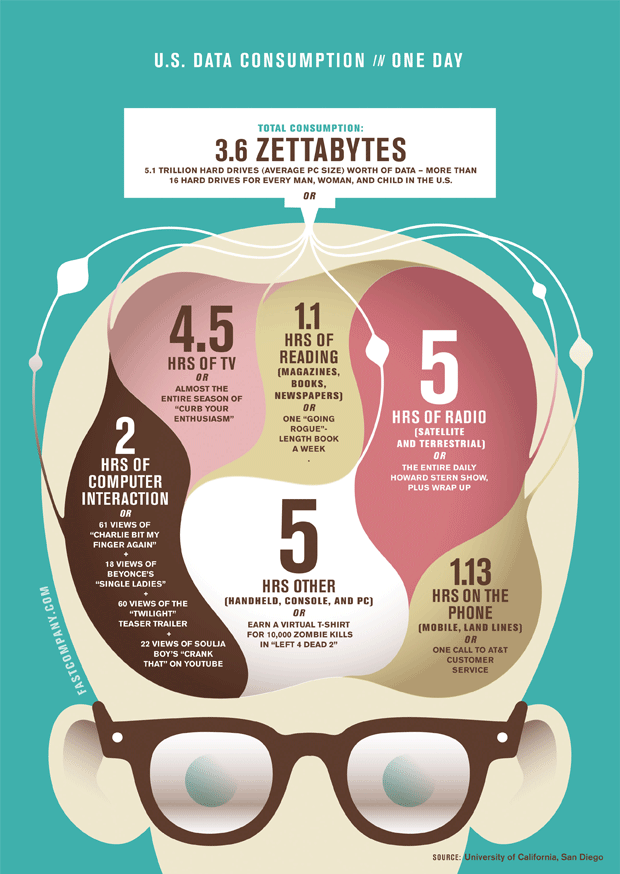Rechercher dans ce blog
vendredi 21 décembre 2012
mardi 18 décembre 2012
mercredi 12 décembre 2012
jeudi 15 novembre 2012
mardi 13 novembre 2012
mardi 6 novembre 2012
mardi 18 septembre 2012
lundi 17 septembre 2012
French people and mobile payment 2012

mercredi 12 septembre 2012
mardi 11 septembre 2012
mercredi 29 août 2012
lundi 23 juillet 2012
How social networks influence our way to travel ? 2012
lundi 9 juillet 2012
jeudi 28 juin 2012
mardi 26 juin 2012
vendredi 15 juin 2012
vendredi 8 juin 2012
mercredi 30 mai 2012
dimanche 27 mai 2012
mardi 15 mai 2012
vendredi 11 mai 2012
mercredi 9 mai 2012
jeudi 3 mai 2012
lundi 30 avril 2012
Google Invents New Way to Manage Data

1. Collect
MapReduce doesn't depend on a traditional structured database, where information is categorized as it's collected. We'll just gather up the full text of every book Google has scanned.
2. Map
You write a function to map the data: "Count every use of every word in Google Books." That request is then split among all the computers in your army, and each agent is assigned a hunk of data to work with. Computer A gets War and Peace, for example. That machine knows what words that book contains, but not what's inside Anna Karenina.
3. Save
Each of the hundreds of PCs doing a map writes the results to its local hard drive, cutting down on data transfer time. The computers that have been assigned "reduce" functions grab the lists from the mappers.
4. Reduce
The Reduce computers correlate the lists of words. Now you know how many times a particular word is used, and in which books.
5. Solve
The result? A data set about your data. In our example, the final list of words is stored separately so it can be quickly referenced or queried: "How often does Tolstoy mention Moscow? Paris?" You don't have to plow through unrelated data to get the answer.















![a decade later 2002 2012 internet differences 590 [infographie] Le web de 2002 et celui daujourdhui](http://www.presse-citron.net/wordpress_prod/wp-content/uploads/a-decade-later-2002-2012-internet-differences-590.gif)


















![2012 Social Media Report How Marketers Are Using Social Media for Business in 2012 [Infographic]](http://www.wordviewediting.com/wp-content/uploads/2012/04/2012-Social-Media-Report.jpg)








